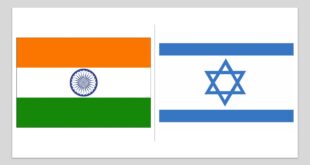Context
External Affairs Minister was speaking at the launch of the book, The Importance of Shinzo Abe, which documents the former Japanese PM’s engagement with India, and in particular his relationship with Prime Minister Narendra Modi and former Prime Minister Manmohan Singh.
India and Japan Relations
India and Japan have a long and close relationship, dating back to the 7th century when Indian Buddhist monks traveled to Japan to spread their religion. In the modern era, the two countries have developed strong economic, political, and security ties.
India and Japan are both democracies with strong economies, and they share a number of common interests, including the promotion of peace and stability in the Asia-Pacific region. They are also both members of the Quad, a security dialogue between the United States, Japan, India, and Australia.
In recent years, economic ties between India and Japan have grown significantly. Japan is the largest source of foreign direct investment (FDI) in India, and Indian companies are increasingly investing in Japan. The two countries have also signed a number of free trade agreements, which have helped to boost trade and investment.
Politically, India and Japan have a close working relationship. They have held regular summits, and they have cooperated on a number of issues, including climate change, terrorism, and nuclear non-proliferation.
Security ties between India and Japan have also strengthened in recent years. The two countries have held joint military exercises, and they have agreed to share intelligence. In 2008, they signed a security pact, which formalized their cooperation in the areas of defence and maritime security.
India and Japan are important partners for each other, and their relationship is likely to continue to grow in the years to come.
Here are some of the key areas of cooperation between India and Japan:
Economic cooperation: India and Japan are major economic partners, with bilateral trade worth over $17 billion in 2021. Japan is the largest source of FDI in India, and Indian companies are increasingly investing in Japan. The two countries have also signed a number of free trade agreements, which have helped to boost trade and investment.
Political cooperation: India and Japan have a close working relationship at the bilateral, regional, and multilateral levels. They have held regular summits, and they have cooperated on a number of issues, including climate change, terrorism, and nuclear non-proliferation.
Security cooperation: India and Japan have strengthened their security ties in recent years. They have held joint military exercises, and they have agreed to share intelligence. In 2008, they signed a security pact, which formalized their cooperation in the areas of defense and maritime security.
Cultural cooperation: India and Japan have a rich cultural heritage, and they have been exchanging cultural ideas for centuries. In recent years, there has been a growing interest in each other’s cultures, and there have been a number of cultural exchanges between the two countries.
India and Japan are important partners for each other, and their relationship is likely to continue to grow in the years to come. They share a number of common interests, and they are working together to address the challenges of the 21st century.
 Chinmaya IAS Academy – Current Affairs Chinmaya IAS Academy – Current Affairs
Chinmaya IAS Academy – Current Affairs Chinmaya IAS Academy – Current Affairs

